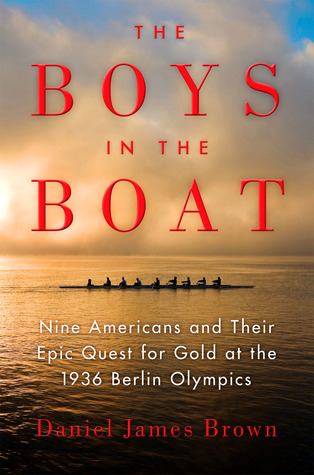Rather than holding a regular book club meeting this month, we had a Christmas potluck at Annie and Paul's home. Their cozy home was decorated for the holidays and provided the perfect place for our gathering. Annie and Paul, Christe and Steve, Ellen and Jeff, Jo, Julie and Bob, Kathy, Linda and Jim, and Nanc attended. We mingled and discussed a myriad of topics before being amused by the fact that the menfolk gravitated to the table and the women gathered around the counter for awhile. It was a wonderful evening with dear friends.
January meeting:
Book: All the Light We Cannot See by Anthony Doerr
Location: Christe's
Date: Thursday, January 7, 2015
Time: 6:30pm
Upcoming meeting:
February 2016: Just Mercy: A Story of Justice and Redemption by Bryan Stevenson at Judy's
Books we've read so far:
January 2014 - Grace (Eventually): Thoughts on Faith by Anne Lamott
February 2014 - The Book Thief by Markus Zusak
March 2014 - Life After Life by Kate Atkinson
April 2014 - The Absolutely True Diary of a Part-time Indian by Sherman Alexie
May 2014 - The Art of Racing in the Rain by Garth Stein
June 2014 - Breaking Free by Marilyn Sewell
July 2014 - The Orphan Train by Kristina Baker Kline
August 2014 - The Golem and the Jinni by Helene Wecker
September 2014 - Middlesex by Jeffrey Eugenides
October 2014 - The Invention of Wings by Sue Monk Kidd
November 2014 - The Dovekeepers by Alice Hoffman
December 2014 - No book. Holiday gathering.
January 2015 - No book. Watched The Book Thief
February 2015 - The Secret Keeper by Kate Morton
March 2015 - Empire of the Summer Moon by S.C. Gwynne
April 2015 - The Orchardist by Amanda Coplin
May 2015 - The Cellist of Sarajevo by Steven Galloway
June 2015 - The Kitchen House by Kathleen Grissom
July 2015 - Still Alice by Lisa Genova
August 2015 - The Boys in the Boat by Daniel James Brown
September 2015 - Ruby by Cynthia Bond
October 2015 - To Kill a Mockingbird by Harper Lee
February 2016: Just Mercy: A Story of Justice and Redemption by Bryan Stevenson at Judy's
Books we've read so far:
January 2014 - Grace (Eventually): Thoughts on Faith by Anne Lamott
February 2014 - The Book Thief by Markus Zusak
March 2014 - Life After Life by Kate Atkinson
April 2014 - The Absolutely True Diary of a Part-time Indian by Sherman Alexie
May 2014 - The Art of Racing in the Rain by Garth Stein
June 2014 - Breaking Free by Marilyn Sewell
July 2014 - The Orphan Train by Kristina Baker Kline
August 2014 - The Golem and the Jinni by Helene Wecker
September 2014 - Middlesex by Jeffrey Eugenides
October 2014 - The Invention of Wings by Sue Monk Kidd
November 2014 - The Dovekeepers by Alice Hoffman
December 2014 - No book. Holiday gathering.
January 2015 - No book. Watched The Book Thief
February 2015 - The Secret Keeper by Kate Morton
March 2015 - Empire of the Summer Moon by S.C. Gwynne
April 2015 - The Orchardist by Amanda Coplin
May 2015 - The Cellist of Sarajevo by Steven Galloway
June 2015 - The Kitchen House by Kathleen Grissom
July 2015 - Still Alice by Lisa Genova
August 2015 - The Boys in the Boat by Daniel James Brown
September 2015 - Ruby by Cynthia Bond
October 2015 - To Kill a Mockingbird by Harper Lee
November 2015 - No book. Watched To Kill a Mockingbird
December 2015 - No book. Holiday gathering.















